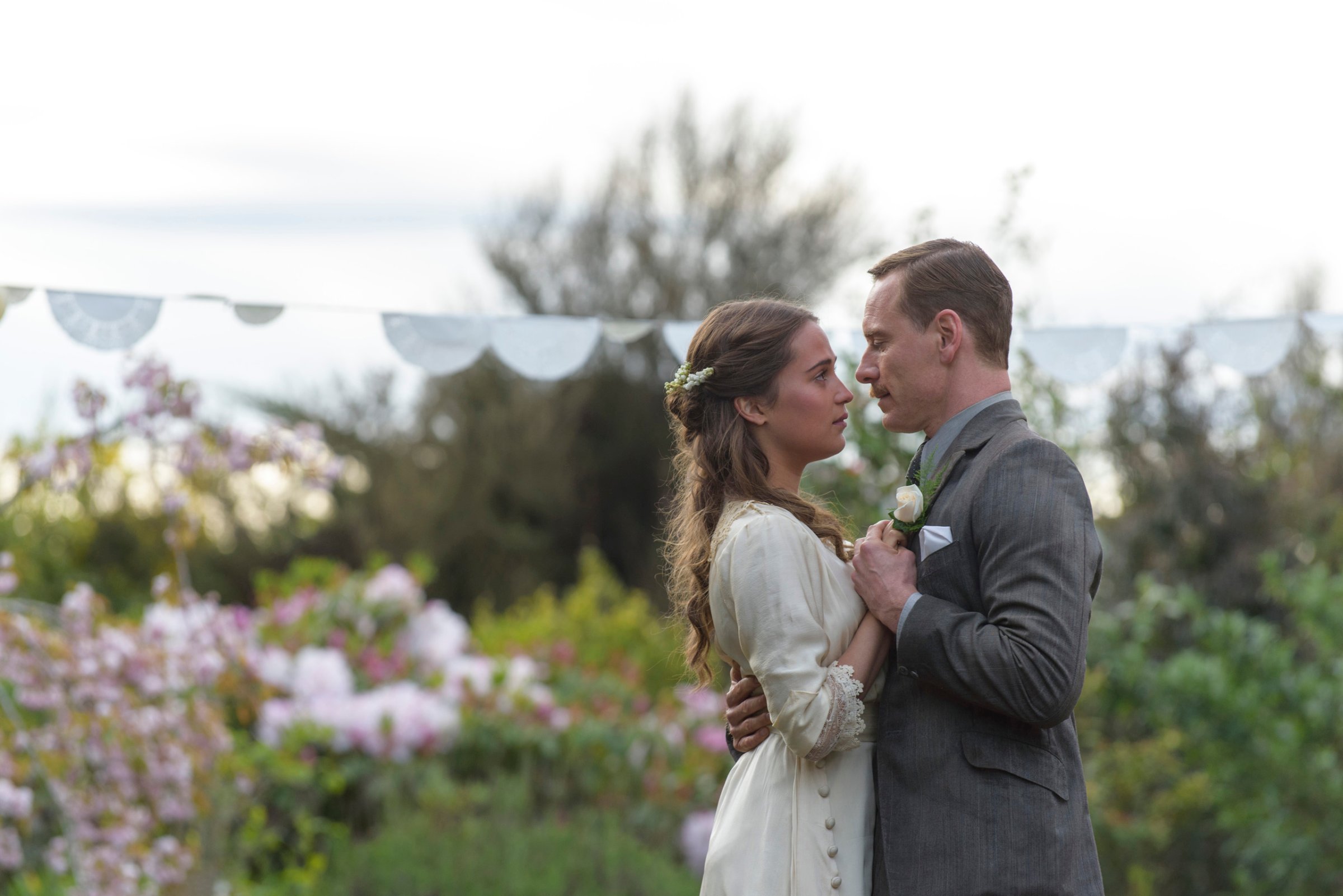
The last filmmaker you’d expect to take on a prestige period best-seller is Derek Cianfrance, whose previous movies include a solemn indie crime drama (The Place Beyond the Pines) and a jagged contemporary romance (Blue Valentine). But The Light Between Oceans, Cianfrance’s adaptation of M.L. Stedman’s novel about an early 20th century lighthouse keeper and his wife who find a baby girl in a shipwrecked boat and decide to raise her as their own, is somehow in keeping with Cianfrance’s modish, emotionally forthright style, even though it’s also a classy drama you could take your mom to. There’s nothing assaultive or aggressively experimental about the film, but in its construction, Cianfrance has taken great care to keep it from being snoozy awards-bait. If the movie exacts a few tears from you, don’t be embarrassed: It works for those tears honestly, and the two actresses who anchor the picture, Alicia Vikander and Rachel Weisz, give nuanced and deeply sympathetic performances. The characters they play are women you believe in, even if you don’t always like them.
Tom (Michael Fassbender) is a recently returned World War I veteran who, horrified by the things he has seen and done during wartime, accepts a lighthouse keeper’s post on a remote island off Western Australian. His first months there pass quickly: In a swift, efficient montage, Cianofrance shows him doing solemn, manly stuff, enjoying the good, clean physical exertion the job sometimes demands (such as chopping wood) and, in his spare time, staring thoughtfully out to sea. When his first term is over, he accepts another, longer one—but he hasn’t been able to forget the perceptive, intelligent young woman he’d met earlier, on his way out to the island for the first time, Alicia Vikander’s Isabel. The two court briefly and marry. Their first year or so of married life on the island passes blissfully: Isabel loves the sea and the fierce coastline, and she loves her husband even more. The only thing missing is a child.
But Isabel suffers multiple miscarriages and falls into a deep depression, until, miracle of miracles, a baby (alive) and a man (dead) show up in a boat drifting just offshore. Tom is eager to report the incident, but Isabel, having swiftly become attached to the infant, begs him not to. Why can’t they just pass the baby off as their own? Tom agrees, even though he knows how wrong this is—he looks as if a cloak of despair has settled around his shoulders. He buries the dead man, and with their new daughter, the couple settle easily into the joys of family living—until Tom learns that another human being is paying a steep price for their happiness. That woman is Hannah (Rachel Weisz), and she lives in the town not far from where Isabel’s parents still live. When Tom sets about redressing the wrong he and Isabel have done, he ignites a chain of events both tragic and irreversible.
Cianfrance lays out the story’s melodramatic twists with effortless grace. Sometimes he’s perhaps too comfortable with the material: At times the movie feels staid and conventional, and, handsomely shot by Adam Arkapaw, it definitely throws off an Awards-season sheen. (Visually speaking, you can’t go too wrong with that gorgeously unforgiving rocky coastline, where, close by, sea and sky alternately mirror and challenge each other.) But Cianfrance knows enough to trust mostly in his actors’ faces, and he’s got some good ones here: Quiet torment practically seeps through Fassbender’s pores. Weisz, as a woman who has lost all that she ever loved and is suddenly offered a chance to regain some of that love, radiates quiet, reserved desperation. And Vikander, in her most wrenching scenes, presents Isabel as a woman close to drowning in waves of grief and longing, though she is also, at times, near-monstrously selfish. Still, you feel for her, because there’s no way to look into Isabel’s eyes and dismiss the deadening sorrow that has made a home there. She’s the movie’s heart—and what you see when you look too deep inside a heart isn’t always pretty.
More Must-Reads from TIME
- L.A. Fires Show Reality of 1.5°C of Warming
- How Canada Fell Out of Love With Trudeau
- Trump Is Treating the Globe Like a Monopoly Board
- Bad Bunny On Heartbreak and New Album
- 10 Boundaries Therapists Want You to Set in the New Year
- The Motivational Trick That Makes You Exercise Harder
- Nicole Kidman Is a Pure Pleasure to Watch in Babygirl
- Column: Jimmy Carter’s Global Legacy Was Moral Clarity
Contact us at letters@time.com